>> Yen Bai effectively implements ethnic policies
>> Bringing a new look to ethnic minority areas
Positive signal
When the sun rises, it is also the time for Mr. Mua A Cang - a Mong ethnic man in Khe Dam village, Mo Vang commune, Van Yen district to prepare food for his family's buffalo and cows. "Before, we were very poor, our family only had a few chickens. Thanks to the State's support of 30 million VND, I invested in raising buffaloes. Now the buffalo herd has increased to over ten, and each year I sell it for hundreds of millions of VND. I am very happy, I can't believe that my family has escaped poverty" - Mr. Cang said while chopping grass for the buffaloes.
Mo Vang is a particularly difficult commune in Van Yen district, where more than 90% of the population is Mong people, but it is no longer as "special" as before. Thanks to livelihood support policies from the Socio -Economic Development Program for Ethnic Minorities and Mountainous Areas, the commune has established 3 cooperatives and 28 production cooperative groups. Cooperatives producing cinnamon essential oil, raising livestock, planting forestry trees, etc. have contributed to creating stable jobs for dozens of local workers, with an income of 8 - 10 million VND/person/month. "The Mong people now know how to do business, no longer relying on rice distributed by the State!" - Chairman of the People's Committee of Mo Vang commune, Mr. Tran Tuan Anh, smiled proudly.
More than a hundred kilometers from Mo Vang, Mu Cang Chai district - a land famous for its terraced fields - is also changing. On the newly concreted road leading to Thao Chua Chai village, Che Cu Nha commune, Mr. Giang A Ly - Chairman of the commune People's Committee pointed into the distance: "This route used to be full of landslides, and when it rained, it would be jammed. Now, rice trucks can travel comfortably thanks to the Program to invest in nearly 2 km of road, build irrigation, and repair suspension bridges. People are healthier, and the fields are better."
By 2024, the poverty rate in the commune will decrease from 63.4% to 39.4%. The entire Mu Cang Chai district has built 234 new houses, supported more than 1,000 stainless steel water tanks, and nearly 1,400 buffalo and cows. Many communes such as Ho Bon, De Xu Phinh, and Lao Chai have concrete roads to the center.
In Van Chan district - where 18 ethnic groups live together, ethnic minorities account for nearly 65%, essential infrastructure works are changing the face of each village. The road from National Highway 32 to Sung Do and Nam Muoi communes, which was narrow and winding, has now been expanded. Ms. Ban Thi Coi, a local resident, shared: "My family donated more than 1,500 m² of land to grow cinnamon. Now that the road is open, travel and trade are convenient, and the economy has improved significantly."
In the period of 2022 - 2024, Van Chan has built 85 new works including: roads, schools, clean water, irrigation; maintained 37 more works serving people's lives. Project 4 - Investing in essential infrastructure is showing clear effectiveness, gradually completing the infrastructure of the highlands.
Up to now, Yen Bai province has completed and exceeded 17/24 main targets of the National Target Program on Socio-Economic Development of Ethnic Minorities and Mountainous Areas. There are many impressive results: the rate of poor ethnic minority households decreased by an average of 5.67%/year, exceeding the set target; average income per capita increased by 2.39 times compared to 2020; 100% of communes have asphalted or concreted roads to the center; 99% of households use the national grid; over 93% of people have access to clean water. In particular, the whole province has completed the goal of removing 28/28 communes in extremely difficult areas from the list of extremely difficult areas according to Decision 652 of the Prime Minister .
The education, health and culture sectors have also recorded strong changes: almost all school-age children have been mobilized; over 97% of people aged 15 and over can read and write fluently in Mandarin; 94.5% of women give birth at medical facilities or with the assistance of medical staff. In addition, direct support policies for people have been widely implemented: more than 1,400 households have received housing support, thousands of households have been provided with tools for storing water for daily use, livelihoods, and job conversions, etc. Nearly 140 km of rural roads have been paved, far exceeding the set target.
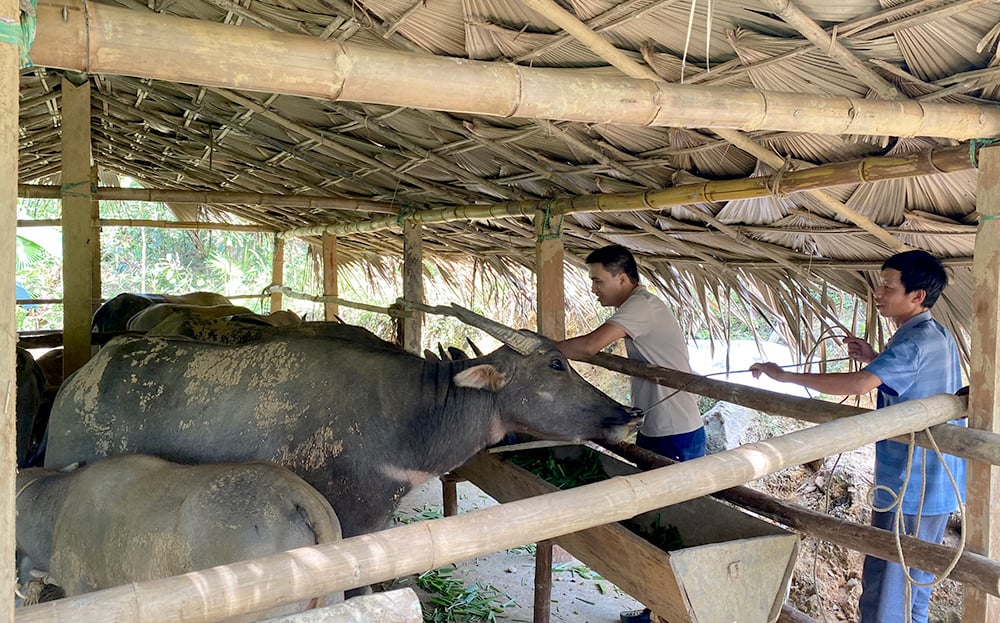
The buffalo farming model of Mr. Mua A Cang (right) in Khe Dam village, Mo Vang commune brings high income.
"Bottlenecks" to be solved
Despite many positive results, the report of the Department of Ethnic Minorities and Religions also frankly pointed out the targets that have not been achieved and are difficult to achieve in the final year of the period. Some targets are expected to be completed if there are timely solutions such as: the rate of villages escaping the category of special difficulties, currently reaching 93.2%; the rate of people watching television and listening to the radio, currently both reaching 99.6%; the rate of high school students, reaching 52%, the target is 60%...
For these targets, the province is actively implementing specific solutions such as: expanding radio and television coverage; promoting student attendance at school... However, there are still targets that are difficult to complete in 2025, mainly due to "barriers" in policies, resources and practical conditions.
For example, the rate of ethnic minority workers receiving vocational training has only reached 43.7%, while the target is over 50%. The main reason is that the support level according to Decision 46/2015/QD-TTg is no longer suitable to reality, leading to difficulties in attracting people to participate in vocational training.
Some indicators are almost "frozen" due to the lack of conditions for implementation, such as: support for production land (0/176 households), support for population settlement (0/170 households), vocational training (only reached 4,726 people, while the target is 77,037 people). These indicators are mainly stuck in the land fund stage, the beneficiaries are no longer available or the process and procedures are too complicated...
Need innovative thinking and flexible approach
Mr. Do Quang Vinh - Deputy Director of the Provincial Department of Ethnic Minorities and Religions emphasized: "To complete the National Target Program for Ethnic Minorities and Mountainous Areas on schedule and with quality, the Department has proposed a series of synchronous and practical solutions. First of all, it is necessary to review and adjust policies to suit the current situation, especially vocational training policies, land policies and livelihood conversion".
Regarding vocational training, it is necessary to strengthen propaganda, mobilization and consultation for ethnic minority workers to learn vocational skills suitable to their abilities and needs; organize vocational training classes with programs and training time suitable to the intellectual level and psychology of ethnic minority students; focus on training professional skills according to the requirements for each job position.
Along with that, it has proposed to add beneficiaries of job conversion to near-poor ethnic minority households and Kinh households living in difficult areas; or to develop a plan to exploit land from agricultural and forestry farms to provide production land for people lacking land. On the other hand, the province also proposed to focus on improving the effectiveness of propaganda, mobilization, and vocational training consultation for ethnic minority workers; to innovate the content, form and duration of training to suit the intellectual level and economic conditions. At the same time, it is necessary to promote the connection between training institutions and enterprises to create output for workers after vocational training.
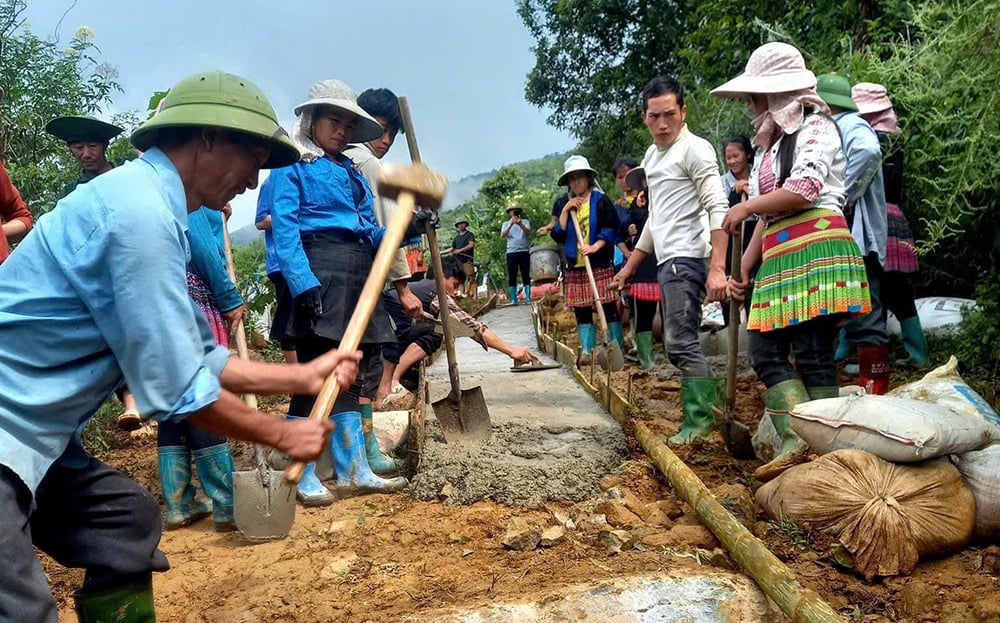
People of Che Cu Nha commune, Mu Cang Chai district build rural roads.
In the fields of health, education, information and communication, the province identified the need to focus on investing in nutritional care models for the first 1,000 days of life; completing grassroots radio and television infrastructure, and strengthening the digital radio system connected to the province's content system.
The initial success in implementing the National Target Program for Ethnic Minorities and Mountainous Areas in Yen Bai is a testament to the determination and consensus from the Party Committee, the government and the people. The results are a measure of management and operation capacity and the methodical, flexible and creative organization of implementation. However, there are still many targets that have not been achieved, especially strategic targets such as vocational training, population arrangement, removing barriers in policies and resources... which are tasks that cannot be delayed and require closer attention and direction from the Central Government and the drastic and proactive participation of sectors and localities.
Ethnic minority and mountainous areas can only truly develop sustainably when people here not only have better living conditions but also have full access to basic services, vocational training, jobs and live in a safe and culturally rich social environment. That is also the real destination of all ethnic policies in the renovation period.
Hong Duyen
Source: https://baoyenbai.com.vn/12/350655/Yen-Bai-Chinh-sach-giup-vung-cao-vuon-minh.aspx


![[Photo] T&T 1 and Ho Chi Minh City 1 People's Police Teams won the men's and women's team championships](https://vphoto.vietnam.vn/thumb/1200x675/vietnam/resource/IMAGE/2025/5/22/39db06ae67cb4001b7a556e8d9a56d07)









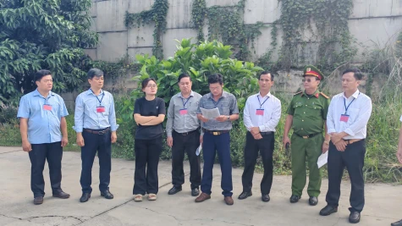













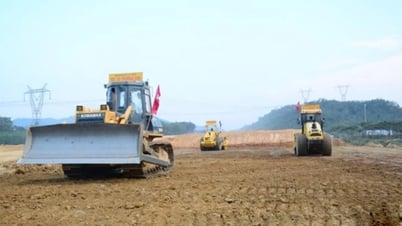
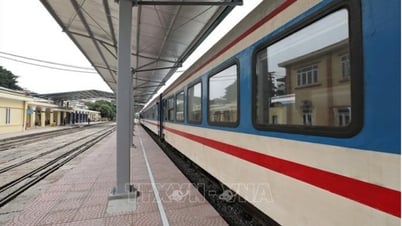



















































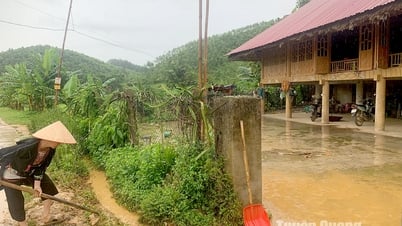










![[Podcast] Week introducing more than 500 OCOP products in Hanoi](https://vphoto.vietnam.vn/thumb/402x226/vietnam/resource/IMAGE/2025/5/22/d144aac2416744718388dbae3260e7fd)
Comment (0)